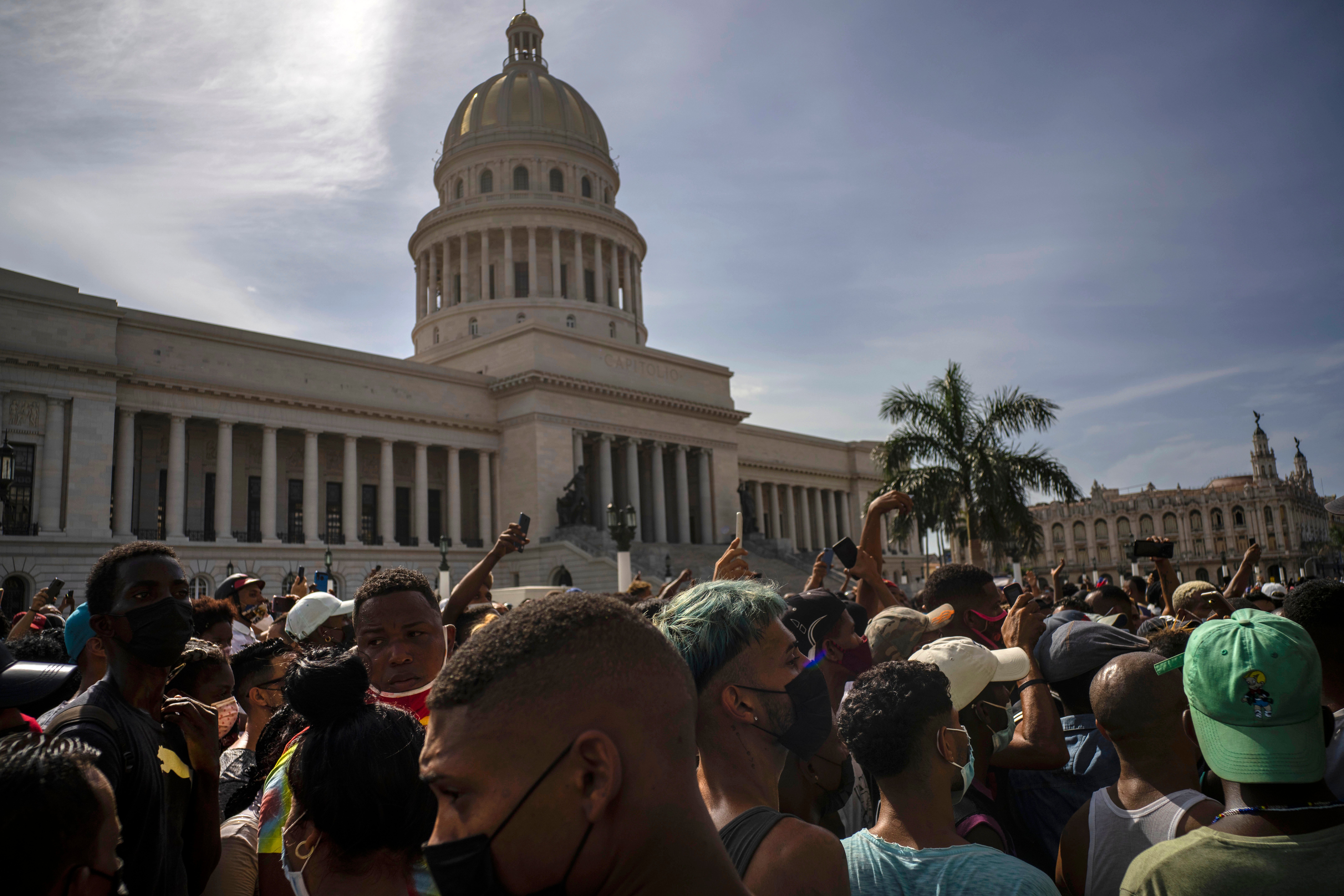Human rights groups criticize Cuba’s new criminal code
Cuba enacted a new penal code this week that activists and human rights organizations worry could further limit free expression and snuff out protests at a time of deepening discontent on the island

Cuba enacted a new penal code this week that activists and human rights organizations warned Friday could further limit free expression and snuff out protests at a time of deepening discontent on the island.
The code, a modified version of the country's 1987 regulations approved by the Cuban government in May, will ripple to journalists, human rights activists, protesters, social media users and opposition figures.
The changes come amid deepening discontent in Cuba produced by compounding crises and as the government continues to dole out harsh sentences to participants — including minors — in the island’s historic 2021 protests.
Among some of the changes are increases in the minimum penalties and prison sentences on things like “public disorder,” “resistance” and “insulting national symbols.”
The new code also establishes criminal categories for digital offenses, saying that people disseminating online any information deemed to be false could face up to two years in prison.
It also prohibits the receipt and use of funds made to finance activities “against the Cuban state and its constitutional order,” which human rights groups say could be used against independent journalists and non-governmental groups. Conviction could bring four to 10 years in prison.
The government has described the new code as “modern” and “inclusive,” pointing to stiffening penalties on gender-based violence and racial discrimination. Following its approval, Rubén Remigio Ferro, Cuban Supreme Court president, said on state TV that the code is not meant to repress, but rather protect “the social peace and stability of our nation.”
But human rights watchdog groups, many of which are not permitted on the island, raised alarms about the new code Friday.
“This is clearly an effort to provide a legal avenue for repression and censorship and an effort by Cuban authorities to undercut the little civic space that exists in the island and impede the possibility that Cubans will take to the streets again,” said Juan Pappier, senior investigator for Human Rights Watch in Latin America.
Pappier, alongside an Amnesty International report, said the code is “plagued with overly broad” language that could be used by Cuban authorities to more easily punish dissent.
Cuba has faced significant international criticism for the treatment of protesters in anti-government demonstrations in July 2021.
A total of 790 participants of the protests face prosecution for sedition, violent attacks, public disorder, theft and other crimes, according to the latest figures released in January by Cuba’s attorney general’s office.
More than 500 are serving prison sentences, according to numbers from opposition organization Justice 11J, which advocates for those on trial or serving prison sentences in connection with the protests.
Bookmark popover
Removed from bookmarks